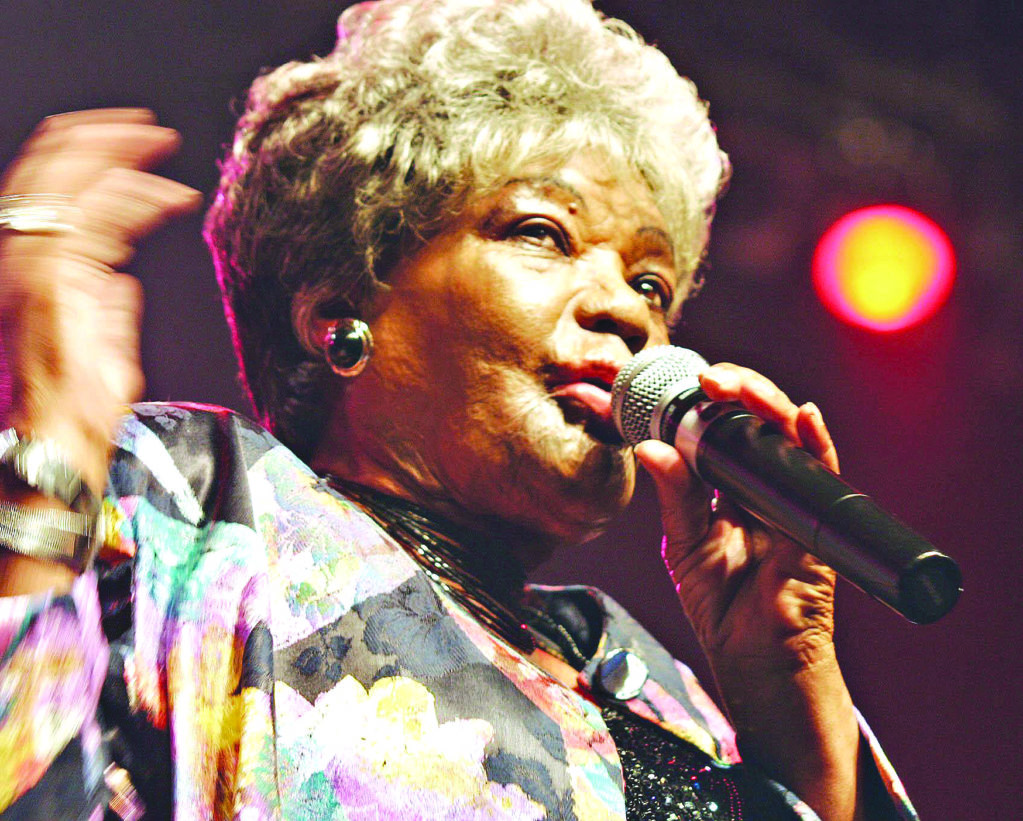In the Africa I know, we sing and dance when we are happy, when we go to the battlefield, and in times of bereavement. We did it at the memorial service of 86-year-old South African female jazz trailblazer, Thandiwe ‘Thandi’ Klaasen on a warm January day. She died a week before, after a long battle with pancreatic cancer.
Could we have celebrated the colorful and illustrious career of Klaasen without the music and renowned Sophiatown style, the multiracial suburb she lived in until it was cleared away by apartheid?
Born in 1931 in Sophiatown, Klaasen and her contemporaries used music to fight the oppressive system and patriarchy. Tired of being an appendage to male bands, she formed a female vocal quartet called the Quad Sisters that shot to stardom with a hit song Carolina Wam, in 1952. They influenced the formation of younger female groups, including Miriam Makeba’s The Skylarks.
On this Wednesday afternoon at the memorial service at Germiston City Hall, east of Johannesburg, songs intertwined with messages of condolences from politicians, musicians and family. One outstanding tribute was the family band’s adaptation of Louis Armstrong’s hit, What A Wonderful World.
Loading...
I see trees of green, red roses too
I see them bloom for me and you
And I think to myself Mam’ Thandi,
Was a beautiful soul, A great dancer
and entertainer, If you agree just clap
your hands, Say how did you do.
This classic was followed by words of Lorraine Klaasen, the image of her mother.
“I was a good observer of my mom. When I grew up I wanted to be like my mother, I wanted to travel the world like my mom and make people happy with my music. And I am really living the promise I made to myself… Music made my mom very happy… She travelled with me as artists but she played that role of a mom…,” says Lorraine, a 2013 Juno Award winner for World Music Album of the Year in Canada.
“What I am going to miss about my mother is her big heart and courage to start something and see it to the end. She taught me to trust in God. She was hardly in hospital. She was a very strong woman and a disciplinarian,” adds her son Roger Phambane.
The snazzy great-grandma’s penchant for wine drew chuckles.
Klaasen’s spells of inebriation were rarely boring. A friend and protégé, Abigail Kubeka, told tales of cooking and empty bottles.
“After all, she was a mother, a housewife and everything. She loved cooking her mutton curry for her husband, Lucas. One day she didn’t realize a cloth fell into her pot. So, she dished out for her husband and Lucas was eating with a fork, but the fork couldn’t pick up the meat. He called her: ‘Thandi, what have you cooked? You said you wanted mutton curry, that’s mutton curry. Ja, mutton curry, but this is a dish cloth,’” says Kubeka to raucous laughter.
Klaasen, among other things, was a magician. She would make a wine disappear in a second, says Nandipha Ndlovu, a granddaughter who called her a role model. Ndlovu is a young doctor in Germiston.
All the speakers agreed on Klaasen’s stoicism and resilience, mentioning how she survived the horror of 1977 when someone – maybe a rival – threw acid in her face. She was in hospital for almost a year.
“That day the fire was set to put an end to her rising star, but they were wrong. That was the day she was truly born. Everyone has got their turning point in their lives. We can rather choose to pursue it, chase your dream or you can turn back, or you can fail. But she didn’t choose to fail,” says Ndlovu.
She would tell people ‘they can burn my face, but they can’t burn my voice,’ says Khubeka.
She also used to joke that she never had one wrinkle in her face. Clearly she never lost the love and respect of her family, nor her sense of humor.
Loading...
